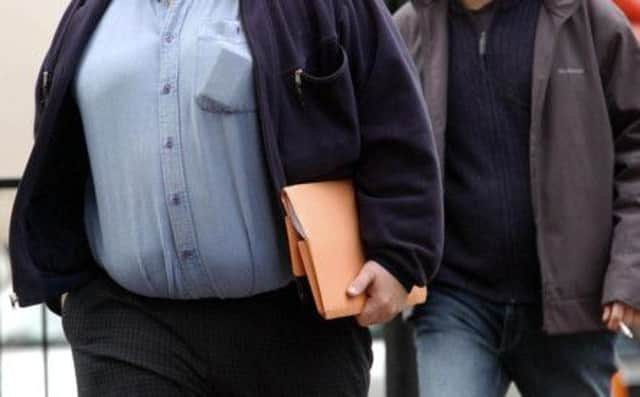Scots ‘sleepwalking into obesity’, warns expert


Professor Steven Blair, from the University of South Carolina, will say that measures such as doctors prescribing exercise should be increased to tackling the rising number of people becoming overweight and obese.
Speaking at the event in Edinburgh today, he will also challenge medical research which overemphasises the role of diet in causing obesity and ignores the positive effects of physical activity. The meeting has been organised by the Royal College of Physicians of Edinburgh.
Advertisement
Hide AdAdvertisement
Hide AdFigures suggest that around one in four people in Scotland is considered obese, with rates rising since 1995. In the US, more than a third of adults are obese.
Speaking ahead of his keynote address, Prof Blair called for a new approach to tackling the rising obesity problem in Scotland and elsewhere.
“Regrettably, much of the international published scientific literature on the causes of obesity is flawed as it places an over-emphasis on dietary intake, at the expense of measuring the positive effect of physical activity,” he said.
“If we wish to prevent levels in Scotland reaching that of the US, greater emphasis has to be placed on exercise. This could involve creative solutions such as considering the provision of exercise advice, or indeed the prescribing of exercise, to patients by doctors and other health professionals.”
Prof Blair said an “entire industry” had built up around dieting, but reducing food intake alone would not solve problems with obesity.
“Physical inactivity has become the biggest public health challenge of the 21st century and we have to become more active if we are to stop collectively sleepwalking into obesity,” he added.
Delegates attending the meeting will also hear about how innovative “intelligence-led” anti-doping programmes have been developed following recent high-profile drug scandals, including that of record-breaking cyclist Lance Armstrong.
The conference will hear that new partnerships with law enforcement, including organisations such as the UK Borders Agency, are anticipated in the new 2015 world anti-doping code.
Advertisement
Hide AdAdvertisement
Hide AdGraham Arthur, from UK Anti Doping, said: “The intelligence-led techniques in the 2015 code provide for a robust anti-doping programme which leaves those tempted to dope with nowhere to hide.
“We are currently seeing how the International Olympic Committee is employing these techniques to provide the watching public with every confidence that the performances they are seeing in Sochi [the Winter Olympics] are clean and free from doping.”
The meeting will also hear speeches from Chief Medical Officer Sir Harry Burns, on increasing physical activity, and Lindsay Thomson, deputy head of medical services for Team Scotland at Glasgow 2014, who will discuss the preparation of athletes and how to beat the opposition.
Meeting organiser Prof Stewart Hillis, emeritus professor of cardiovascular and exercise medicine at Glasgow University, said: “Sport and exercise play a vital part in our physical and mental wellbeing, ranging from the casual jogger to the elite athlete.
“The wider positive impact of exercise on health has often been underestimated, particularly in reducing obesity.”